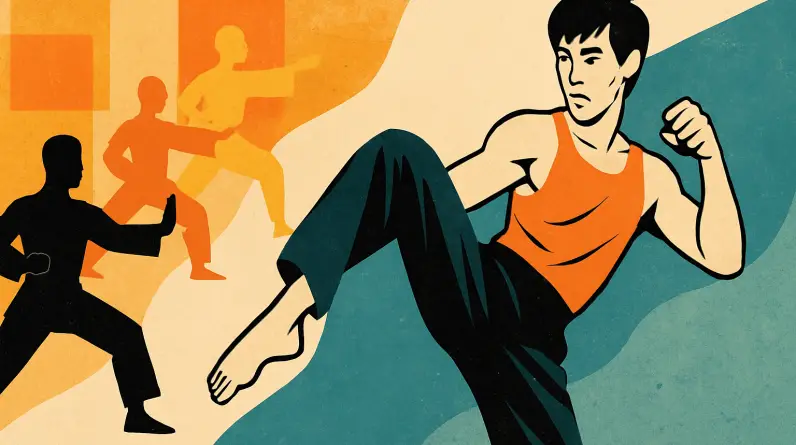
In the realm of physical fitness, Bruce Lee stands as a paragon of athleticism, discipline, and dedication. His physique, which boasted a low body fat percentage of 6-8% and remarkable muscular density, was the envy of athletes and stars during his era – and remains a benchmark of fitness goals even today. While his extraordinary martial arts skills are well-documented, his holistic approach to diet and nutrition that played a pivotal role in crafting his legendary stature. This comprehensive article delves into the nuances of Bruce Lee’s dietary habits, combining traditional Chinese dietary principles with modern Western nutritional knowledge.
1. High-Quality Protein – Building Blocks of Muscle
Bruce Lee understood the importance of protein for muscle maintenance and repair. He incorporated lean proteins into almost all of his meals, and occasionally used supplements to further elevate his protein intake. Some of the key proteins he consumed regularly include:
- Beef: A frequent choice, particularly lean cuts like steak.
- Chicken: Typically boiled or baked, avoiding fried methods.
- Fish: Varieties like salmon, rich in omega-3 fatty acids, were regulars in his meals.
- Eggs: Often consumed raw, mixed with milk. Occasionally, Lee even consumed the shells of his raw eggs, finely blended into protein shakes.
- Dairy: Lee believed in the benefits of milk for muscle recovery. He generally avoided solid cheeses, but was known to consume cottage cheese, a source of slow-digesting protein.
2. Complex Carbohydrates – Fueling the Dragon
Although many contemporary diets tend to minimize intakes of complex carbs, given Lee’s high-intensity workouts and constant state of activity, carbohydrates were crucial in fueling his muscles and other bodily systems. Key complex carbohydrates consumed by the Dragon include:
- Rice: Brown rice, with its higher fiber content, was preferred.
- Pasta: Bruce was known to have loved Italian food and to have lovingly dined on home-cooked pasta meals with wife Linda.
- Vegetables: Regulars included bok choy, spinach, broccoli, carrots, bell peppers, and cauliflower.
3. Embracing Freshness
Lee’s diet emphasized natural, whole foods. He veered away from fast food (much of which was in its infancy in the 60s and 70s). Prioritizing freshly made meals, Lee also avoided canned and overly processed foods, seeking the purest nutritional benefits.
4. Moderation with Sugars
Though he occasionally indulged in treats like chocolate, he was always disciplined. Recognizing the pitfalls of excessive sugar, such as energy crashes, he approached treats with restraint and fueled himself with slower-burning energy sources.
5. Hydration for Vitality
Staying hydrated was non-negotiable. Those who have read the Tao of Jeet Kune Do and Lee’s other writings will know that he was constantly active, even outside of his regular workouts. As such, his body required constant hydration to function at its best. Lee didn’t drink alcohol at all. He preferred beverages such as:
- Lipton black tea: Regularly seen in his hand, he found it hydrating and refreshing.
- Ginseng tea: Valued for its supposed energy-boosting properties in Chinese culture.
6. Supplementation – Enhancing Natural Intake
Bruce Lee was not averse to using supplements strategically. Some that he was known to include within his diet and fitness regime include:
- Vitamin C and E: Consumed for antioxidant properties, aiding in muscle recovery and immunity.
- Whey Protein: Useful during periods when his diet might lack sufficient protein.
- Bee pollen: Its dense nutritional profile was believed to elevate stamina and energy.
- Royal jelly: Touted for its potential rejuvenating properties.
7. A Personalized Dietary Blueprint
Lee’s individualized approach to diet was ahead of his time. Much like his philosophy about martial arts – in absorbing what is useful and discarding what is useless, Bruce Lee meticulously noted how different foods impacted his body and performance, continually refining his diet based on these insights. While he appreciated the benefits of dairy, for instance, he also acknowledged its occasional digestive discomforts, which is why he avoided cheeses, showcasing a depth of self-awareness.
Historical Context
During Bruce Lee’s time, nutrition science was in its nascent stages. Yet, Lee’s pioneering mix of traditional and modern nutritional insights made him a trendsetter. Collaborations with experts like nutritionist Rheo H Blair further refined his understanding and approach. In many respects, Bruce’s approach is still popularly accepted as wise dietary practice.
Key Take-Aways
Bruce Lee’s nutritional practices offer profound insights into his holistic approach to life and well-being. While his martial arts feats are legendary, understanding his dietary regimen reveals the comprehensive dedication that powered his unparalleled physique. Drawing inspiration from his dietary mastery can serve as a roadmap for those seeking not just physical excellence but a harmonized state of health and fitness.






